Global Business Environment: PESTLE Analysis of Royal Dutch Shell
VerifiedAdded on 2023/01/05
|7
|791
|50
Report
AI Summary
This report presents a PESTLE (Political, Economic, Social, Technological, Legal, Environmental) analysis of Royal Dutch Shell, a leading international firm in the oil, gas, and chemicals industry. The analysis examines various external factors impacting the company's operations and strategic decisions. The political factors include climate change policies and instability in regions like the Middle East, posing threats to the firm. Economic factors, with their global variations, also negatively affect the company. Social perceptions regarding the oil and gas industry, especially concerns about safety and quality, present another challenge. Technological advancements, such as battery technology and blockchain, offer opportunities for growth. Legal aspects, including competition laws and data protection, provide opportunities as well. Environmental factors, including sustainability concerns and geographical issues, pose further threats. The report concludes that while technological and legal factors offer opportunities, the political, economic, social, and environmental factors present significant threats to Royal Dutch Shell. The report suggests the firm should focus on capitalizing on opportunities to improve its brand image and customer loyalty.
1 out of 7
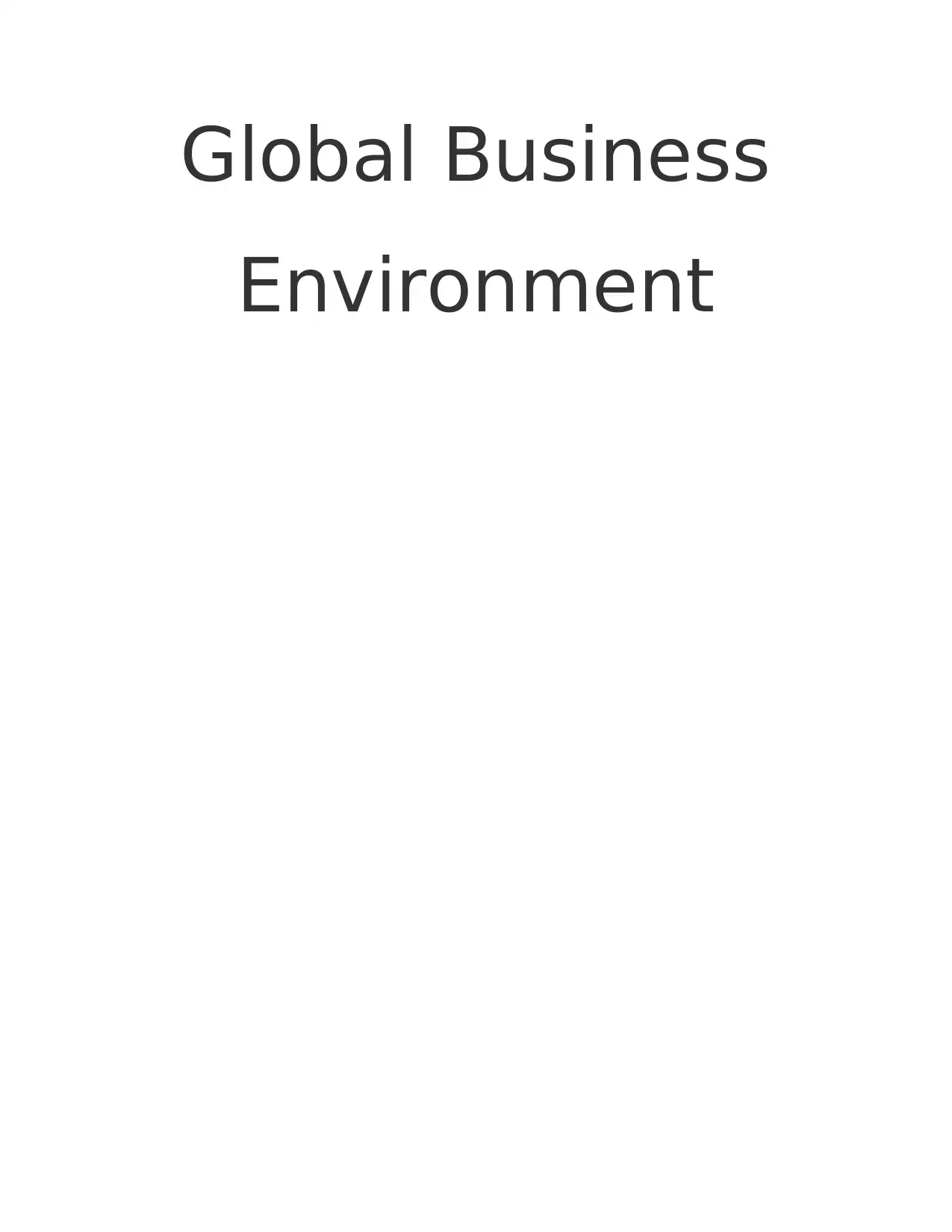
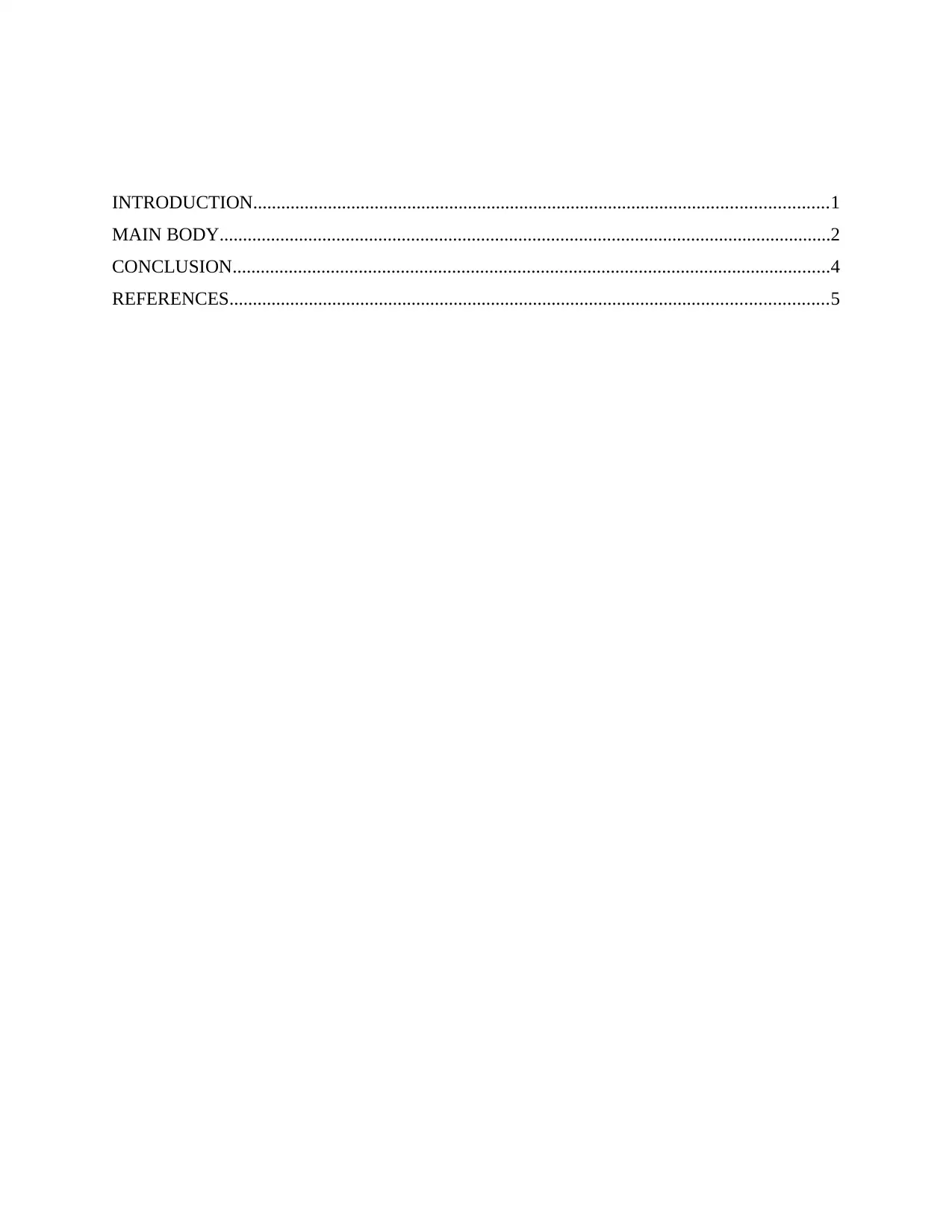
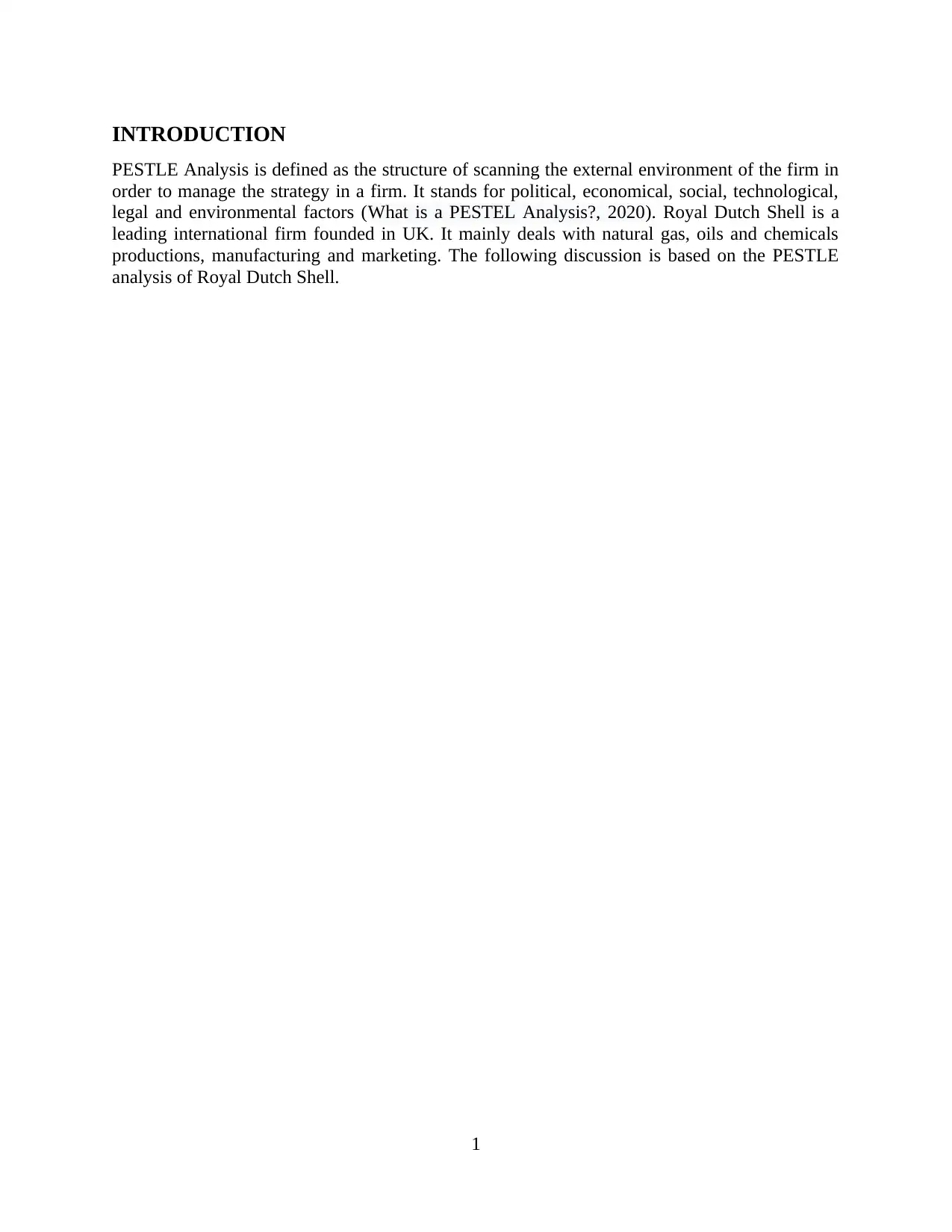

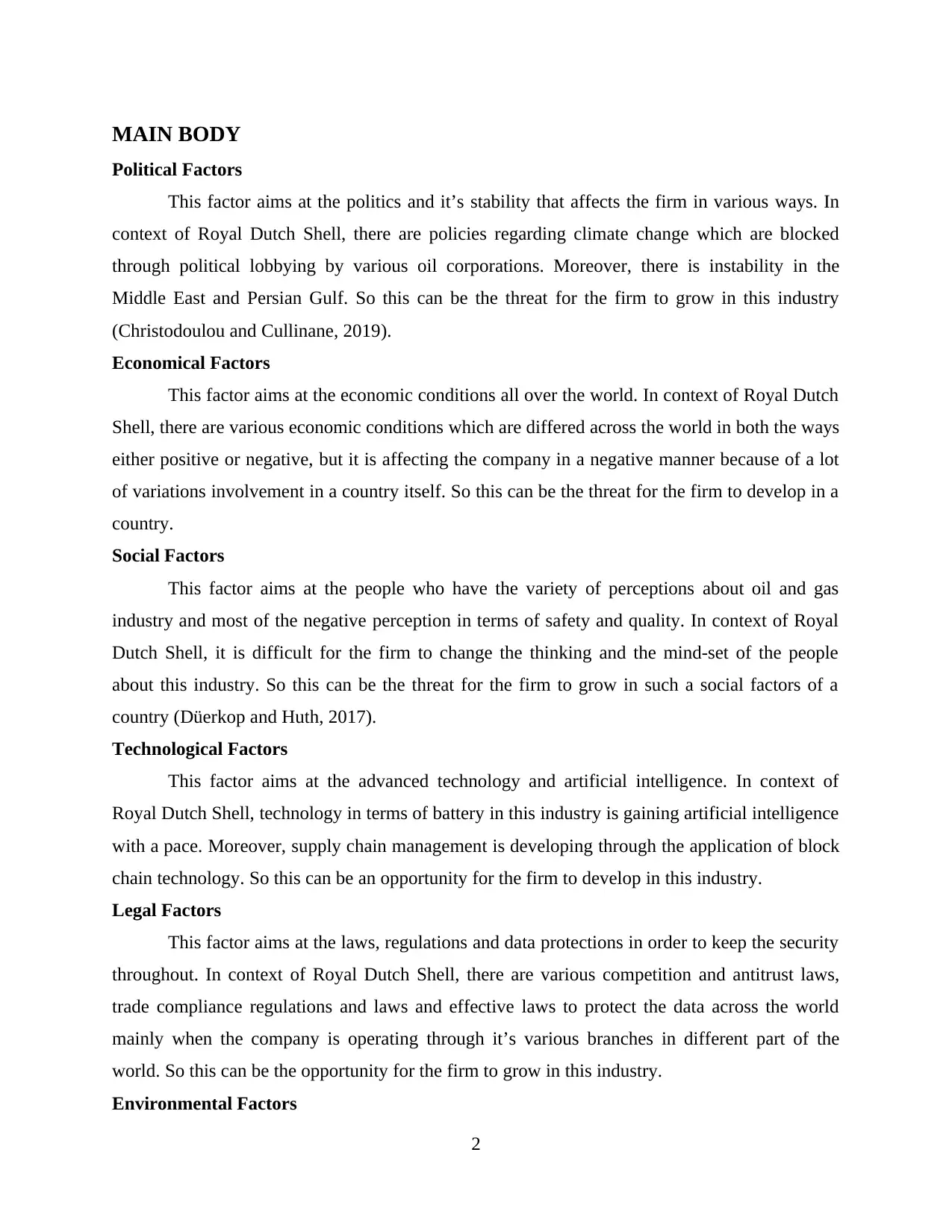
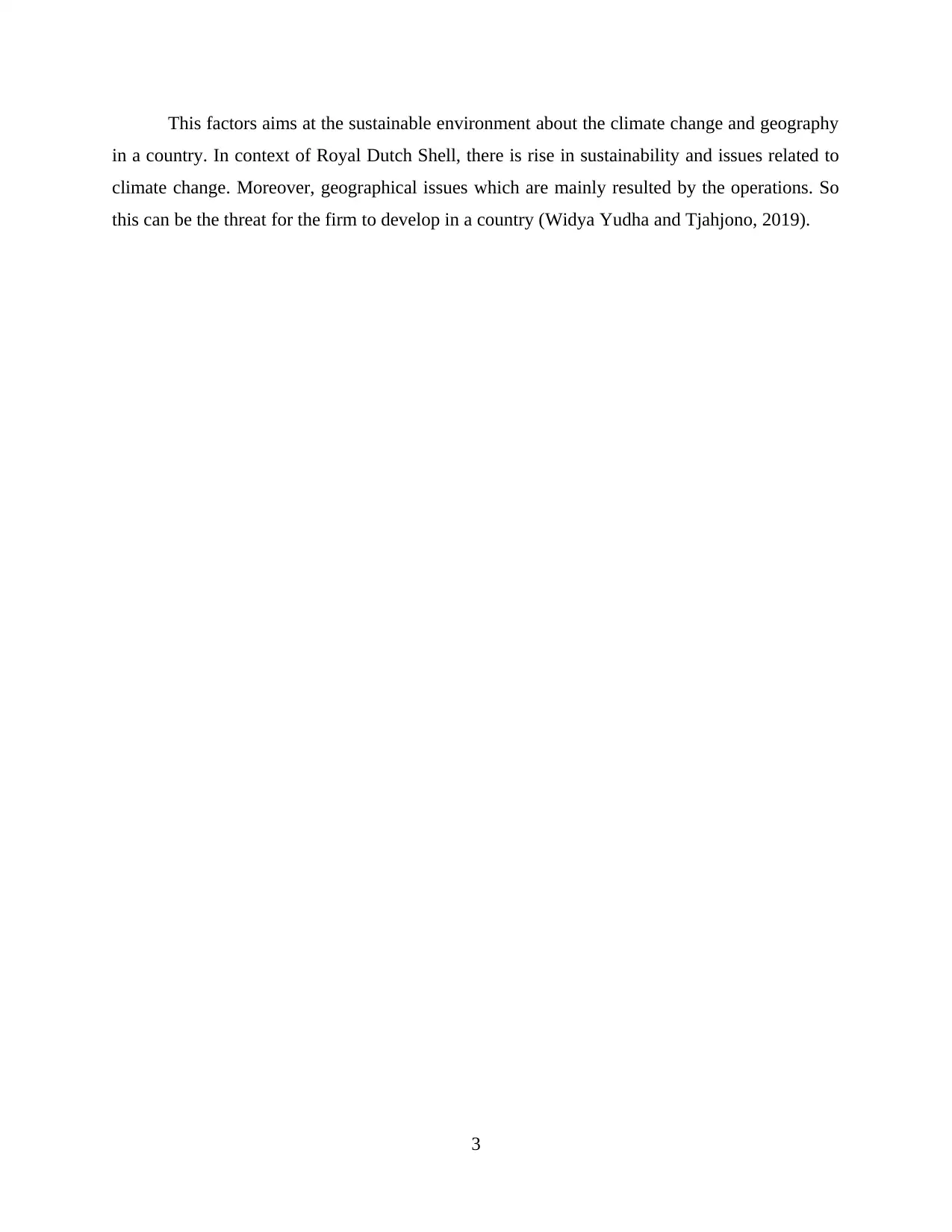
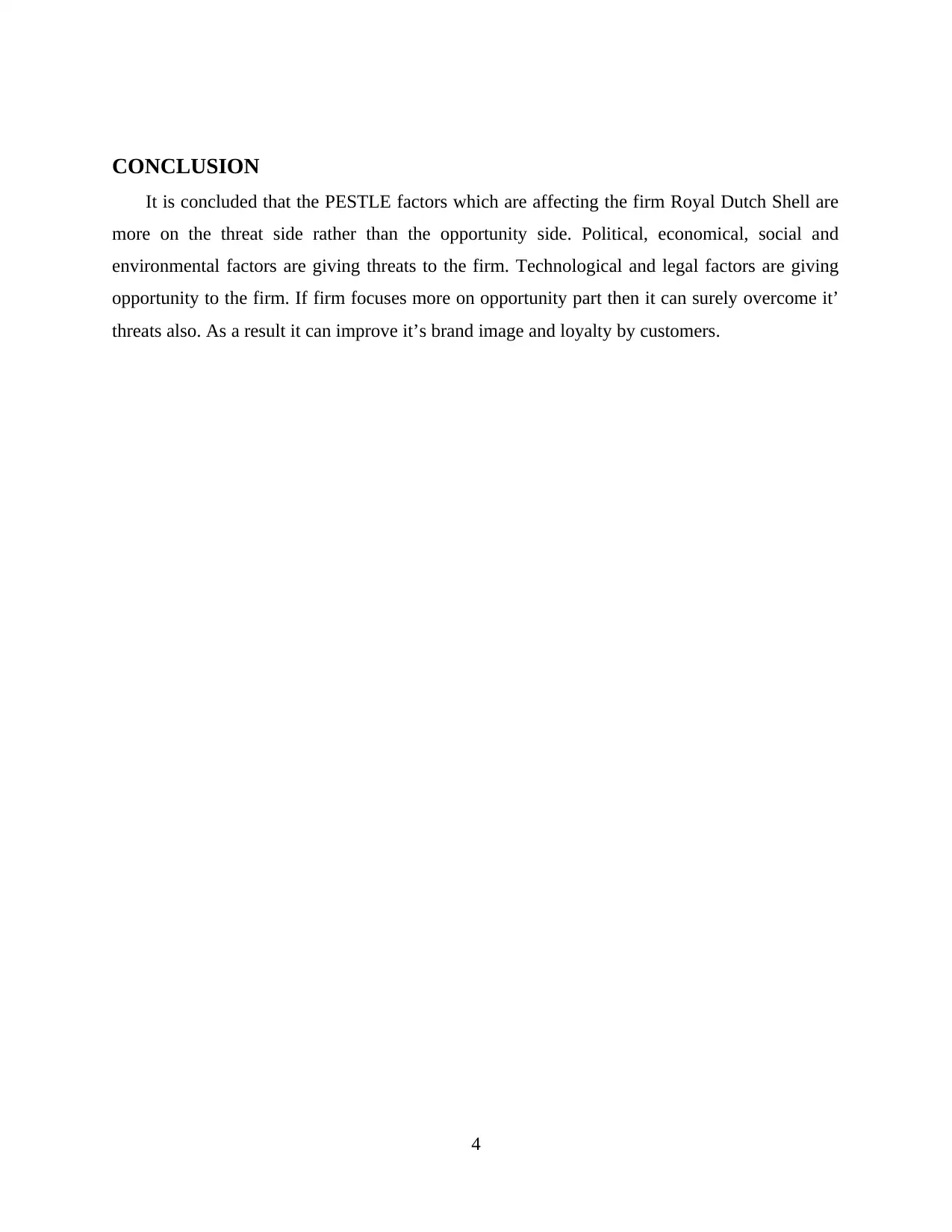
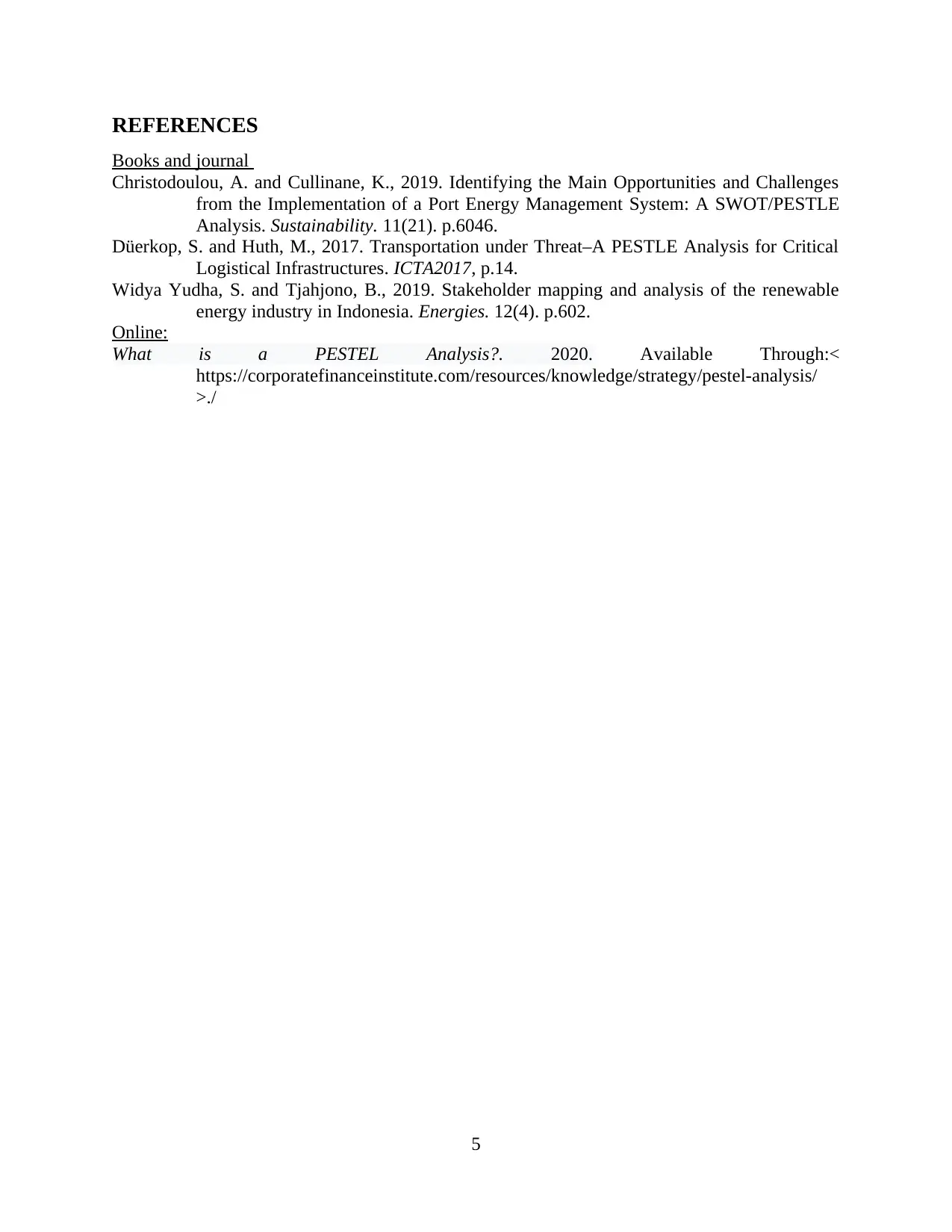





![[object Object]](/_next/static/media/star-bottom.7253800d.svg)